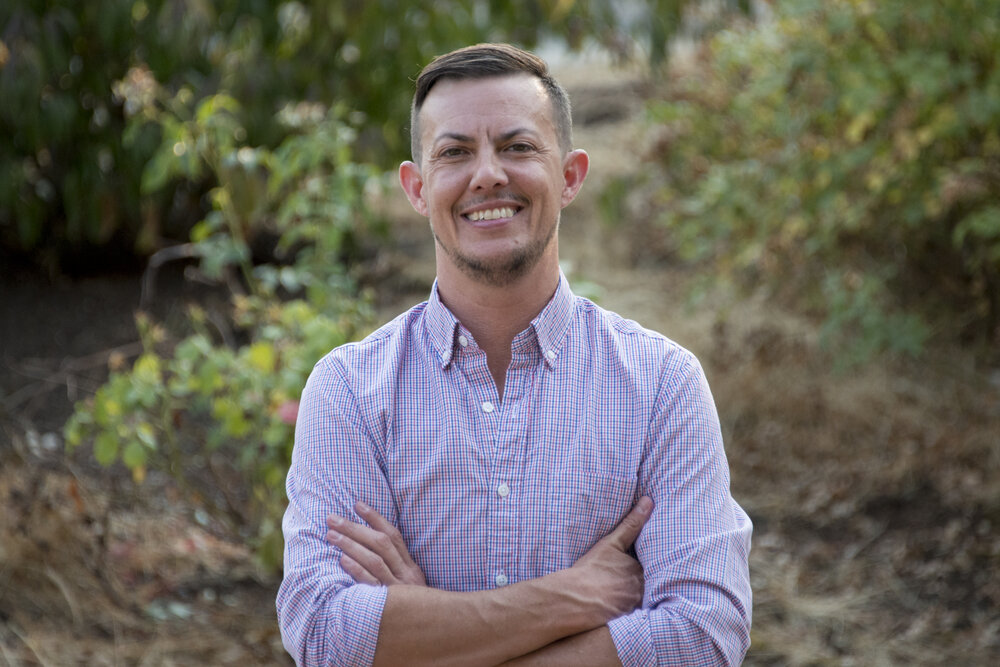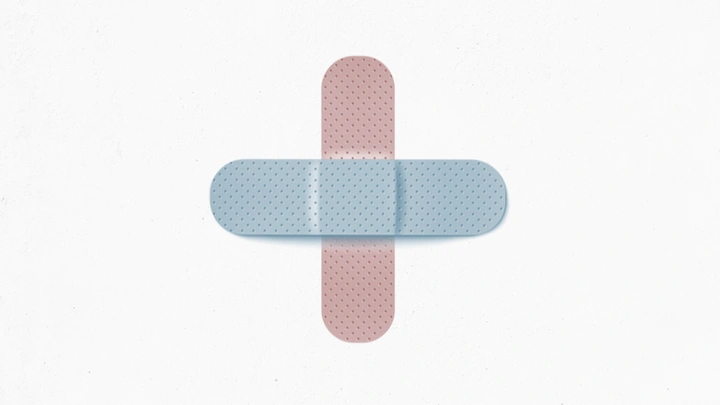By Carter Sickels [home page], author of the novels The Prettiest Star and The Evening Hour.
-
[Image source. Click image to open in new window.]
 Carter Sickels
Carter Sickels
[Image source. Click image to open in new window.]
One day in June [2011], I sat in a crowd of thousands at Dolores Park in San Francisco, blankets spread across the lawn, bottles of champagne uncorked, rainbow flags waving in the breeze. All around me were women in sparkling halters, men in skimpy shorts, trans and cis and genderqueer people. Glitter everywhere. It was 2011. New York had just legalized marriage equality, and "I ♥ NY" T-shirts dotted the hill. My boyfriend, who is now my husband, and I had come down from Portland, Oregon. I wasn't new to big Pride celebrations, but this was the first time I'd been part of an enormous group of queers as myself: a queer trans man.
I took off my T-shirt and exposed my bare chest in public, something I hadn't done since I was a little kid. I'd just had top surgery six weeks before. My scars were still raised and red, and I probably shouldn't have been exposing them to the sun so soon. But it was Pride, and I was in San Francisco. A woman smiled at me, and a trans man walking by gave me a glance of acknowledgment. People sometimes misgendered me, but not here, not now. The two lines on my chest reminded me of the years of pain and repression and shame, the uncertainty and doubt. But they were also signs of joy and love and the survival of this body to tell my story. In a sea of boas, naked chests, fake eyelashes, and tiny shorts, I felt seen.
On Monday [2020-06-15], I felt seen again, as the Supreme Court handed down a landmark decision ruling that gay and transgender people are protected from workplace discrimination. This was a huge, unexpected victory for us, but I also felt whiplash. Just three days before [2020-06-12], the Trump administration had finalized a rule that rolls back contested Obama-era health-care protections for transgender and queer people -- in effect, green-lighting discrimination in an area that is already difficult for trans people to navigate.
To make the Friday announcement even more painful, it came on the four-year anniversary of the Pulse massacre, when a gunman killed 49 people in a queer dance club; in the same week that two black transgender women, Riah Milton and Dominique "Rem'Mie" Fells, were murdered; and during Pride month, a time for so many of us to come together to celebrate our lives and the legacy of our ancestors.
On paper, the Department of Health and Human Services has determined that the nondiscrimination protections in Section 1557 of the Affordable Care Act define sex as biological sex, not gender identity or sexual orientation. In practice, and if upheld by courts, this rule means that federal law is indifferent if a physician denies me a test for COVID-19 because my gender identity offends him, or if a physician conditions treatment on my stopping testosterone therapy. And health-insurance companies could try to deny coverage of gender-affirming surgeries and therapies. Although the Supreme Court decision on Monday will open the door to many challenges to this narrow definition of sex, lawsuits often move at a glacial pace. Some politicians have called for HHS to pause the health ruling, in light of the justices' decision, but that, too, is uncertain.
If the ruling was intended to scare trans people, it worked. We know all too well about discrimination in health care. Like most trans people, I fear hospital stays and dread doctor visits. I worry that a doctor won't understand the trans-specific care I need. Or that I'll be misgendered by the staff, or mocked -- all of which has happened to friends. I've had doctor's appointments in which a nurse, a resident, and interns all crowded into the room, studying me like an animal in a zoo. Many trans men avoid seeing gynecologists because of the humiliation -- waiting in a room full of women staring at you or being questioned, loudly, about why you're there. In parts of the country, especially rural areas, finding doctors who will prescribe trans patients the hormone therapy they require can be very difficult. I am white; the situation is much worse for trans people of color.
Despite radical disparities, I've been fortunate to find excellent doctors who are respectful, sensitive, and knowledgeable about the complexities of trans health care. Some hospitals and medical centers have been educating and offering trans sensitivity training. So I hope that a majority of health-care workers would provide me with the care I need and treat me with the same dignity as other patients. But simply hoping our health-care system will work fairly is not enough.
Transitioning was the most difficult, scariest thing I'd ever done, but it was also the most revelatory and important. I wasn't scared to transition because I was turning into a different person, but because I was finally letting my most vulnerable, authentic self emerge in a world where many people do not want me to exist.
For years, all I thought about was gender. I'd spend hours online researching surgeries and the effects of testosterone, reading blogs and watching YouTube videos. I talked constantly with trans friends about their lives, and watched men -- cis and trans -- closely, looking for reflections of myself or the man I may become.
Before having my gender-confirming surgery and starting hormone therapy, I endured aggressive stares and questions from people, usually men: "Are you a man or a woman?" Because I never knew how others would read me, I tried to disappear. I folded in on myself, trying to be small, afraid to meet anyone's eyes. I worried about my chest, my soft face, my girl voice. I berated myself for not "knowing" I was trans earlier in life; I questioned whether I was really trans or trans enough. Every single day, I wondered whether I should start testosterone, or how I would come out to my family. Finally I made the decision to go to a surgeon in Seattle.
The physical transformation for me was also a deep emotional transformation. With my new chest, I felt buoyed by joy and confidence, and I felt a connection to my own body. But that wasn't an end in itself. Transitioning did not start on the day of my surgery or end after I grew a mustache. It's been an ongoing process of coming out and coming into myself.
I relied on trans friends to help me navigate the legalities of changing my name and my gender marker on my driver's license and passport and Social Security card, all of which required money and paperwork.
Although I've found trans-affirmative doctors in Kentucky, where I now live, I've also been asked inappropriate questions and had to educate some of my own physicians about trans health care. I worry about traveling internationally, but I'm just as anxious traveling in America outside of urban spaces: What if I need to go to the doctor in a small town? Will they be transphobic? I worry about the future too. What will health care look like for an old trans man, or retirement or nursing homes? The Trump administration's ruling only intensifies these feelings.
Despite everything, I know I carry a lot of privilege. Eleven years after I started my transition, I'm only ever read as male. I have a full-time job at a university that supports me. Still, I'm anxious whenever I have to use a men's public bathroom (in Kentucky, it's difficult to find gender-neutral restrooms), or when I go into the locker room at the gym, I worry that I will be outed, threatened, assaulted. Ohio, the state where I was born, refuses to change gender markers on birth certificates, so mine still lists my gender as female.
Every June, my husband and I make a trip to Portland or San Francisco to see our friends and to celebrate Pride. This year, we won't be going. Because of the pandemic, many Pride celebrations in cities have been canceled or moved online. But I still celebrate, to take a moment to recognize how far I've come, how far we've all come -- the Supreme Court ruling being the latest victory.
During Pride, I honor the many people who refuse to be invisible. I turn to the AIDS activists of the 1980s and '90s, and channel their compassion, activism, and collective fury, and to the black and Latinx trans and queer people who fought back against police harassment and brutality during the summer of 1969. And we all must look to the current black trans activists who are leading the way. On Sunday, a glorious crowd of thousands showed up for a protest in Brooklyn, chanting "Black Trans Lives Matter."
Even though the Trump administration may try, it cannot take away what I felt at Dolores Park, and what I've felt at every Pride celebration since: the ecstatic queerness thrumming through the park; the acceptance of a beautiful variety of bodies and sexuality; the power in numbers; the sense of a community that lives by courage and truth, and that fights for me to be where I am -- a queer trans man feeling the sun on my scars.
Return to Persagen.com
